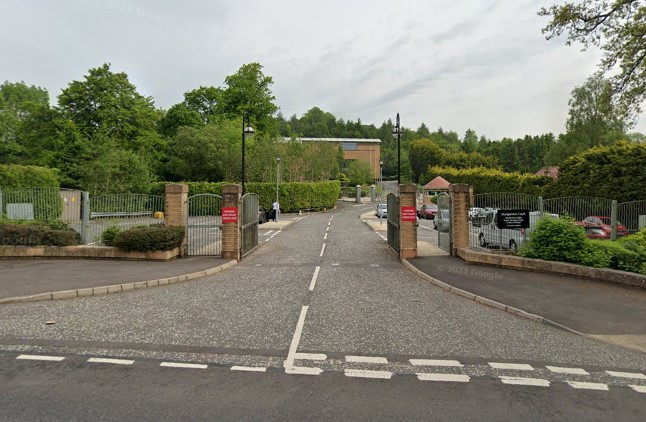A barrister representing a convicted paedophile has blamed the press for ruining his client’s business after a failed bid to keep his identity secret.
The lawyer took aim at the coverage of William Mullan’s case after reporter Tanya Fowles had successfully argued in court against his being allowed to remain anonymous.
Mullan’s defence team had applied for a ban reporting his identity after he was charged, claiming that him being named would detrimentally impact on a relative’s health.
But, after a judge sided with Tanya on the matter, the lawyer raised in mitigation the negative impact that reporting of the case had had on the businessman.

Dungannon Crown Court
Appearing at Dungannon Crown Court, Mullan was jailed after admitting 14 counts of making indecent images of children and single counts each of possessing a prohibited image and an extreme pornographic image.
After his plea, his defence counsel told the court: “Regrettably as a result of exposure of this offending, particularly in the papers, he has lost various dealerships and trade is down 80 per cent at least.”
The remark has prompted Tanya to hit back, saying journalists are now “effectively getting the blame for carrying out our role facilitating open justice”.
It follows another recent case in Northern Ireland in which a paedophile was granted anonymity for life after it was argued he would self-harm if identified.
Tanya, who covers courts in Northern Ireland in addition to her work as a BBC local democracy reporter, told HTFP: “Disclosure of defendants’ identification and charges publicly and the concerns of how that will be viewed in the community, is quite obviously at the root of the majority of reporting ban applications.
“That, as a bald reason, would not meet the test for anonymity, so more frequently than ever human rights are being invoked with threats to self-harm if named.
“In this instance the defence tried to claim a relative of the defendant would suffer exacerbated ill-health if he was to be named, however guidance clearly states this is not a reason for anonymity. Nonetheless, the application went ahead, albeit unsuccessfully.
“At sentencing, the defence made the pointed remark that press coverage impacted on the defendant’s business. That is wrong on every level, but persists.
“It would appear defendants and their legal representatives clearly don’t or won’t comprehend that offending behaviour is the singular reason for any detrimental impact, therefore the offender is entirely responsible for any misfortune which may befall them.
“Naturally that’s a bitter pill to swallow so the default position is to shoot the messenger.”
The court heard police had seized electronic devices including two phones from Mullan that contained 209 Category A images, the most serious, as well as 341 Category B, 568 Category C and one prohibited and one extreme image.
Mullan was previously sentenced for similar offending in 2008 when he was given a Probation Order for three years and a Sexual Offences Prevention Order.
Mullan’s defence counsel told the court: “My client accepts he had an unhealthy interest in this material. He was inquisitive and curious.
“It is agreed he was given a chance, but clearly hasn’t taken it. While that is so, it was a long time ago and it worked for 10 years. Unfortunately he gravitated back.”
Addressing Mullan, Judge Peter Irvine QC said: “You have a deviant sexual interest in children and the previous probation order has not deterred you from re-engaging in this activity. This is not a victimless crime.
“There has to come a point when the court takes a serious view and sends out a deterrent. I am not persuaded this can be dealt with by anything other than custody.”
Mullan was sentenced to 12 months imprisonment, placed on the Sex Offender Register for 10 years and made subject to a SOPO for the same duration.

 Follow HTFP on Twitter
Follow HTFP on Twitter